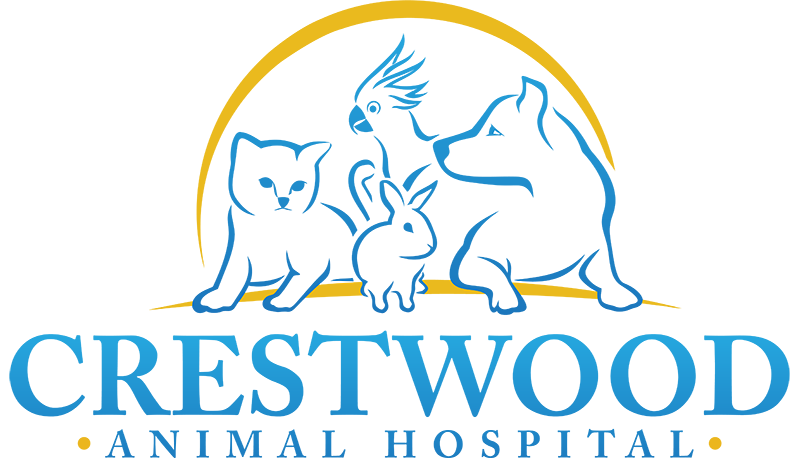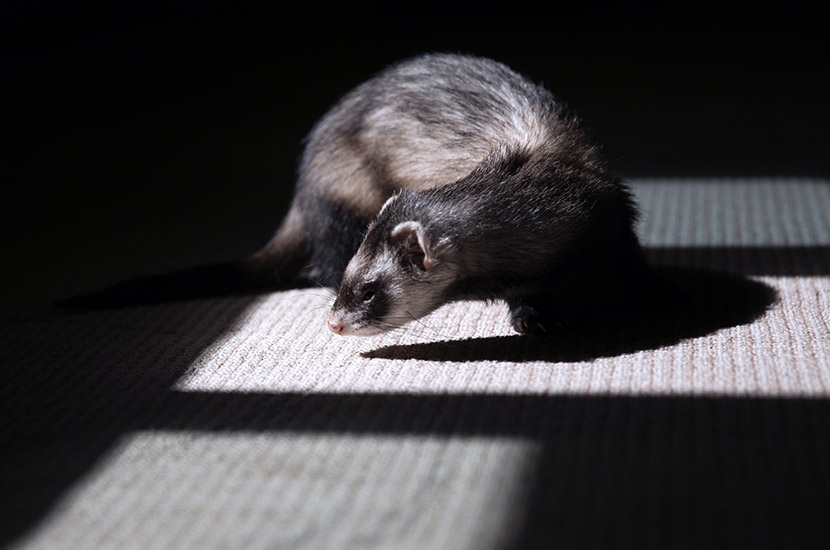Diarrhea or loose stools are a common diagnosis in pet ferrets. Some ferrets may appear otherwise normal, or may experience appetite loss, weight loss, dehydration, and abdominal pain. Stools vary in character and color, and may be “seedy”(soft with a granular appearance), liquid or contain mucous or blood.
Possible causes for diarrhea and soft stools include:
- A bacterial infection, including Helicobacter mustelae
- A viral infection, including Epizootic Catarrhal Enteritis (ECE)
- A hairball or other foreign material in the stomach or intestines
- Inflammatory Bowel Disease (IBD)
- Lymphoma, or other gastrointestinal cancers
- Stress from a change in the environment or other underlying medical condition
It can be difficult for the veterinarian to distinguish between the above diseases, as many will produce similar symptoms. It is important to start with a complete physical examination and history. Symptoms appearing right after exposure to other ferrets may be caused by an infectious disease or even stress. If stools are dark and tarry and the ferret exhibits signs of abdominal pain, such as teeth grinding, gastrointestinal foreign body and/or Helicobacter should be considered. Other clues in the history and physical examination findings may suggest other causes.
Basic diagnostic tests are important to help determine the underlying cause. Specialized testis for specific viruses or bacteria may be recommended. If testing is negative and the ferret does not improve, it is often necessary to take surgical biopsies of the stomach, intestines or other organs. These samples are sent to an experienced exotic animal pathologist for evaluation.
Treatment varies with cause. In many cases sick ferrets are dehydrated and nutritionally depleted so treatment may begin with fluid therapy and nutritional support. Diarrhea caused by bacteria may be treated with antibiotics. A special combination of antibiotics and other medications is used to treat Helicobacter. Gastrointestinal foreign bodies typically require surgical removal along with supportive care. Lymphoma requires chemotherapy or radiation and the prognosis varies with severity of the disease when diagnosed, the age of the ferret at diagnosis and other factors.
Prognosis for ferrets with diarrhea varies with general condition and underlying cause. A thorough evaluation gives the best chance for finding therapy that gives the best chance of a successful outcome.

